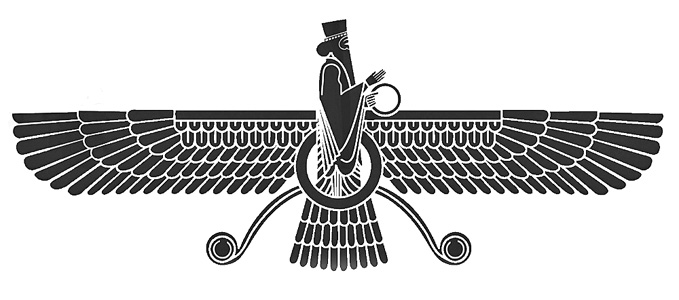.
Zarathushtis follow an ancient calendar, which is full of meaning and relevance for our day-to-day living. The first seven days of the month in the Zoroastrian calendar are dedicated to Ahura Mazda and His Amesha Spentas. The Amesha Spentas represent at one level, a Divine quality of Ahura Mazda, and at another, the guardian of a good creation. For example, Bahaman is Vohu Mana or the Good Mind and also the Guardian Angel of animals. Ardibehest is Asha Vahishta or Truth and presides over Fire.
Have a look at the chart below:
Hormuzd – Good Spirit
Bahman – Good Mind
Ardibehest – Best Truth
Sherevar – Divine Power
Spendarmad – Piety
Khordad – Perfection
Amardad – Forever (eternal)
Interpreted as under:
The first seven days of the month teach us how we may lead our life. Begin in the name of and dedicate all, work to Hormuzd or God; Do all work using Bahman or the Good Mind; Do it with Ardibehest or Truth; And you will attain Sherevar or Power; To power you must add Spendarmad or Piety and Humility; And you will get Khordad or Perfection; Which will last for Amardad or for eternity.
Asho Zarathushtra essentially saw life as a struggle between the forces of ‘good’ and ‘evil’. Man’s duty is that of a spiritual warrior (Rathestar) fighting evil at the physical, social, ethical and metaphysical level. At the physical level, all forms of impurity and pollution are seen as a manifestation of evil. A good Zarathushtrian, therefore, always aims for purity and cleanliness. At the social level, all forms of poverty, want, human suffering and ignorance are seen as an affliction of evil. At an ethical level, every good Zarathushti must guard himself/herself against the demons of wrath, greed, envy and other vices. Finally, every good Zarathushti should battle the forces of evil at a metaphysical level, through the power of Avestan manthras and other tarikat (spiritual disciplines).
The Pahlavi Dinkard recommends the following 5 virtues, which every Zarathushti must cultivate:
- Truthfulness
- Charity
- Skill
- Endeavor
- Give encouragement to others for good deeds.
The true value and beauty of Zarathushtrianism lies in its simplicity and positive outlook to life. The religion enjoins happiness for every one and asserts that true happiness comes to those who seek happiness for others. God is not a Divinity to be feared, but a friend. One is not expected to be ‘God-fearing’, rather one should strive to become, ‘God-friendly’ and ‘God-loving’!
Zarathushtrianism does not reserve a single day in a year for fasting. God is not to be pleased by remaining hungry. The only fast recommended is fasting or abstaining from sin. Our religion, which is pro-life and pro-happiness, recommends neither fasting nor gluttony, neither celibacy nor lechery.
Despite its antiquity, Zarathushtrianism has and will always remain ageless and most relevant for all times to come.
- Customs To Observe At Atash Behram Or Agyari - 13 April2024
- A Shower Of Spring Festivals - 6 April2024
- Significance Of Eggs, Bunny, Bread, And Fire During Easter! - 30 March2024
